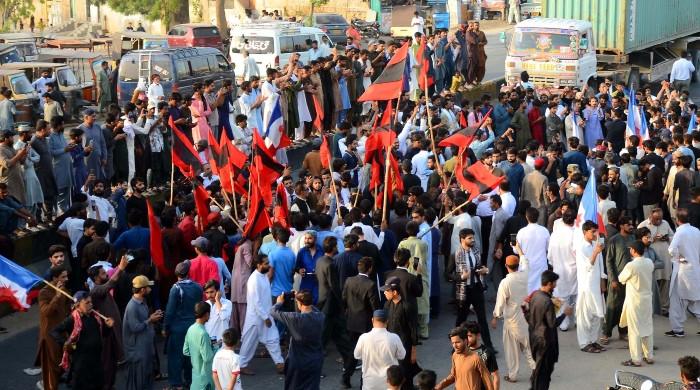Sindh Lawyers Conclude Sit-ins Following CCI Decision on Canal Project
SUKKUR: After the Council of Common Interests (CCI) firmly dismissed the contentious proposed canal initiative on the Indus River, attorneys in Sindh declared an end to all sit-in protests, with the exception of the one at Baberlo Bypass in Khairpur.
Celebrations erupted at Baberlo bypass, where a demonstration had been ongoing for twelve days, upon hearing the news that the federal government’s scheme to develop new canals had been rejected. Demonstrators conveyed their happiness, hailing it as a triumph for Sindh’s solidarity and tenacity.
The All Sindh Lawyers Action Committee revealed that all other sit-in demonstrations across the province would be suspended and court boycotts would formally cease beginning April 30. The Baberlo Bypass sit-in will proceed for the time being, owing to pending demands.
Lawyer leader Sarfraz Metlo stated that the action committee is scheduled to convene with Sindh government officials in Sukkur today to push for demands such as the elimination of corporate farming, the dropping of charges against protesting lawyers, and the restitution of seized vehicles.
Metlo added that the decision to end the Baberlo sit-in would depend on the result of this meeting.
Meanwhile, Karachi Bar President Aamir Nawaz Warraich stated that traffic is no longer being hampered, even though the Baberlo Bypass sit-in is still in place. He stated that now that the construction of new canals has been called off, the corporate farming projects should also be abandoned.
Despite the judgment, over 40,000 vehicles remain stranded at various locations due to prior blockades, severely disrupting the movement of goods and vital supplies between Sindh and Punjab.
Traffic Police reported that in Karachi, the protest on the Link Road connecting the National Highway to the Super Highway, which was led by lawyers and political campaigners, has also ended, allowing traffic to return to normal.
Lawyers and political figures had been staging the protest for several days, resulting in substantial traffic congestion.
Similarly, lawyer sit-ins in Kandhkot, Ghotki, and other locations have ended, contributing to the restoration of mobility throughout the province.
The CCI, presided over by Prime Minister Shehbaz Sharif, met the previous day and rejected the federal government’s plan to build new canals from the Indus River. The council also reversed the Executive Committee of the National Economic Council’s (ECNEC) approval, which had been given on February 7.
The federal government has vowed to involve all provincial administrations in order to reach a long-term agreement on agricultural and water management policies.
The CCI also resolved to return IRSA’s January water availability certificate and seek wider discussions with all relevant parties.
A new committee made up of representatives from both the federal and provincial governments will be established to propose solutions in accordance with the Water Apportionment Accord of 1991 and the Water Policy of 2018.
The canal project, a component of the Green Pakistan Initiative, sparked weeks of demonstrations throughout Sindh after fears arose that it would jeopardise the province’s historical water rights under the 1991 Accord.
Political and nationalist organisations, civil society groups, and attorneys joined together to organise large rallies and sit-ins at strategic locations, paralysing traffic on major highways.
Despite prior assurances from the prime minister that no project would move forward without consensus, the protests persisted until the CCI made its official decision.
The projected cost of the cancelled Cholistan canals project was Rs211.4 billion, and it was intended to bring thousands of acres of barren land in Punjab’s Cholistan desert under cultivation.



Comments (0)
No comments yet. Be the first to comment!
Leave a Comment